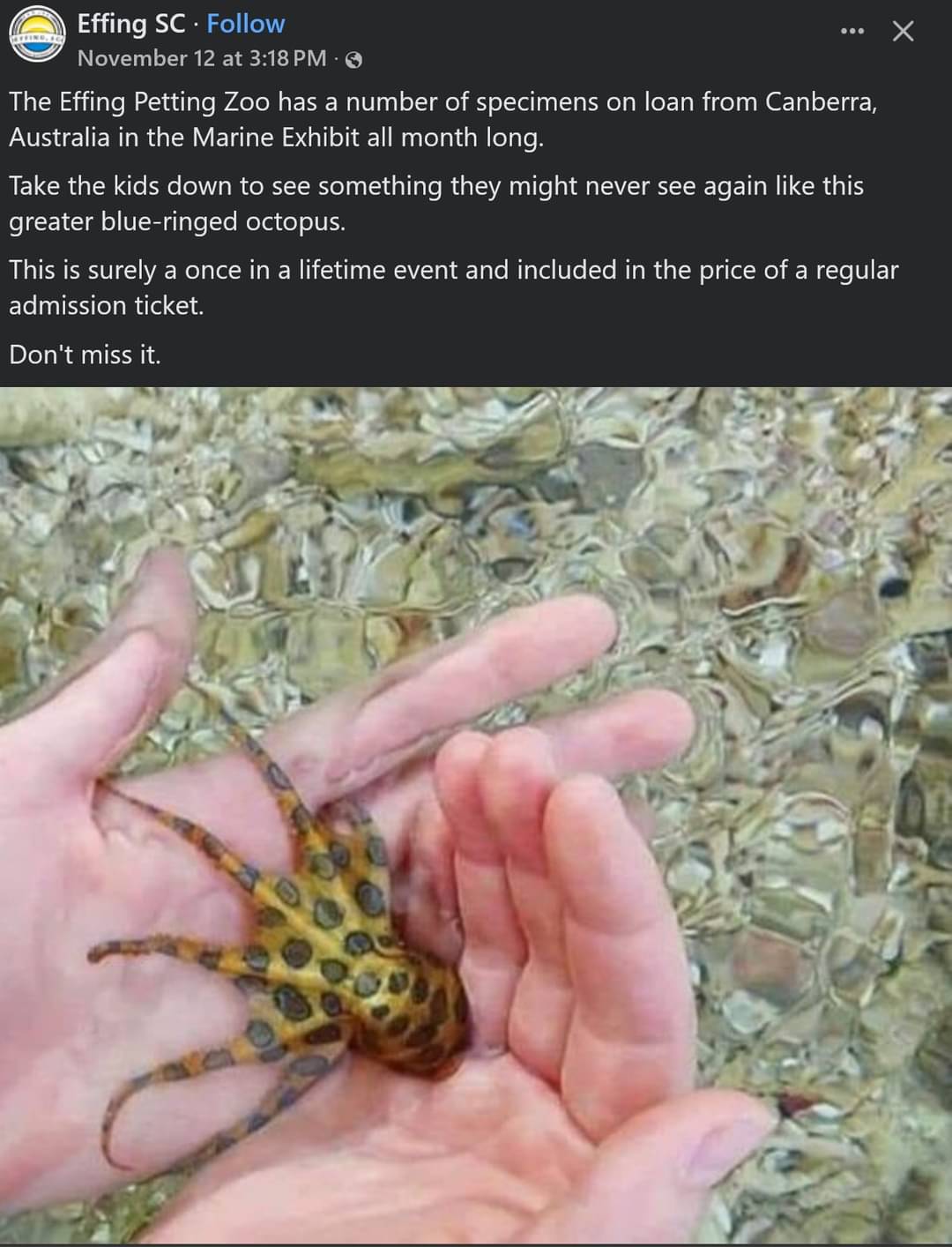this post was submitted on 21 Nov 2024
694 points (99.2% liked)
Science Memes
11426 readers
2038 users here now
Welcome to c/science_memes @ Mander.xyz!
A place for majestic STEMLORD peacocking, as well as memes about the realities of working in a lab.

Rules
- Don't throw mud. Behave like an intellectual and remember the human.
- Keep it rooted (on topic).
- No spam.
- Infographics welcome, get schooled.
This is a science community. We use the Dawkins definition of meme.
Research Committee
Other Mander Communities
Science and Research
Biology and Life Sciences
- [email protected]
- [email protected]
- [email protected]
- [email protected]
- [email protected]
- [email protected]
- [email protected]
- [email protected]
- [email protected]
- [email protected]
- [email protected]
- [email protected]
- [email protected]
- [email protected]
- [email protected]
- [email protected]
- [email protected]
- [email protected]
- [email protected]
- [email protected]
- [email protected]
- [email protected]
- [email protected]
- [email protected]
- !reptiles and [email protected]
Physical Sciences
- [email protected]
- [email protected]
- [email protected]
- [email protected]
- [email protected]
- [email protected]
- [email protected]
- [email protected]
- [email protected]
Humanities and Social Sciences
Practical and Applied Sciences
- !exercise-and [email protected]
- [email protected]
- !self [email protected]
- [email protected]
- [email protected]
- [email protected]
Memes
Miscellaneous
founded 2 years ago
MODERATORS
you are viewing a single comment's thread
view the rest of the comments
view the rest of the comments

The bite actually doesn't kill you, it just shuts down your nervous system so you can't breath.
People if given cpr immediately (kind of need someone to know it's what bit you) till it wears off / get on a ventilator will live.
I remember reading about someone who survived. They got but, and a team started doing cpr. The only issue was his eyes were open the entire time on a hot sunny day. So he was blind after the damage the hot sun did.
Blind as permanently blind?
Correct, nothing can move, not your lungs, not your eye lids, nothing. So he went very blind from staring at the sun for 30mins straight while people did cpr until ambulance arrived
What about the heart?
It would take a very large dose to affect the heart and even then it would just lead to a slower heart rate instead of stopping it. The heart does not need nerves to tell it to beat and it's action potential triggering is different than muscles and nerves. They'll be brain dead from being without oxygen before they're heart dead, similar to opioid overdoses.
Thus the CPR, I would imagine.
Does it just automatically restart beating after effects wear off?
I would personally imagine that you may need to be defibrillated at some point but otherwise probably yes? The toxins are causing the paralysis and people do survive it so I can only imagine that the heart takes back over after a certain amount of effort. Otherwise, I don't actually know.
Defibrillation is only useful if the problem is your heart is doing some kind of fibrillation.
If it's not beating at all, other methods like manual massage or chemical restarts (epinephrine) are the right move.
Gotcha. My CPR training was so long ago, and the only relevant information that really stuck with me was "the AED will directly instruct you if it thinks a shock is helpful based on what it detects", after that the specifics just kinda fell through my brain.
You might need external/transesophageal pacing with a severe exposure to TTX, but that would only be temporary. It shouldn't cause v fib.
Gotcha! My brain did the "heart stop = defibrillator" thing. Thanks!